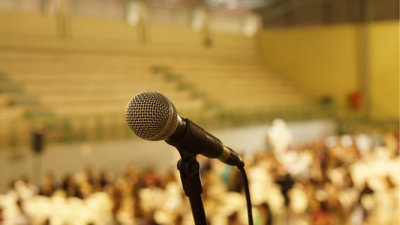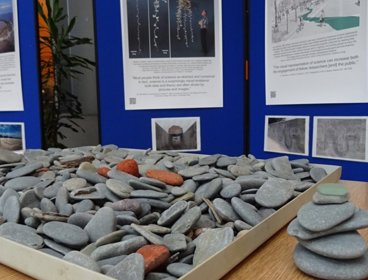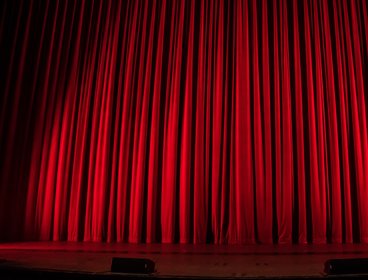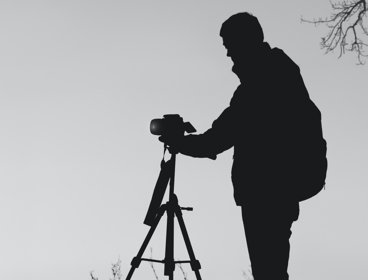By Joanne Norcup, Centre for Caribbean Studies, University of Warwick and the Open University
The global pandemic of 2020 saw an upturn in listeners and viewers to online content, especially mediums such as podcasts. Prior to 2020, technological shift in cultures of listening had been changing as mainstream broadcast radio stations such as the BBC were restructuring their general online content provision for an increasingly online and global streaming listening landscape.
Broadcasting can be defined as the production of visual and oral content for general listeners and the shaping of the content and narratives within such programmes can be more of a general overview of themes, issues and empirical information which prioritises breadth of audiences' interests. Podcasting or narrowcasting offers capacities for individuals and specialist groups to create content that is entirely focused on unique passion-projects or highly specialist fields of interest. Both radio and podcast technologies offer geographers expansive possibilities to pitch and share research outputs connected to specialist fields within the discipline.
Between 2016 and 2019, my independent production company Geography Workshop worked on a series of radio programmes as well as running podcast workshops with the intention of engaging wider public audiences with interdisciplinary humanities geography content. One of the central aims of Geography Workshop is to generate public engagements between geographical researchers, writers, educators, artists, communities and activists to better understand, communicate and create nuanced geographical knowledges to enable diverse voices to be better heard.
While radio programmes often mean pitching ideas to a pre-defined programming structure (where editors and sound engineers are already in place, often necessitating fitting your research within a pre-existing programme format), podcasting offers complete control to the creator regarding how a podcast – whether a one-off or as part of a series – is conceived, constructed, and edited, giving greater freedom to the producer and creative capacities for the kinds of content one might wish to include. As researchers and writers, this gives us the capacity to envisage and create podcasts responsive to both the content we wish to share and the needs of our potential listeners.
General tips for creating listening content
-
If you are thinking about creating a podcast output for your research, consider whether you might be able to pitch a special one-off to a particular podcast host who you might wish to work with (for example the RGS-IBG's Ask the geographer podcast series). Consider podcasts or radio programmes where your work might already find target listeners and approach commissioning editors with a pitch. This is likely to be less resource intensive than creating a podcast from scratch.
-
Listen to radio programmes and podcasts and find out from these the kind of pitch, tone, content and duration for your listening output - do you prefer conversations or a lone narrator telling a story? What kind of narrative style would best suit your research output? What kind would best suit your target audience(s) of listeners? Are there programmes and podcasts already created to which your work could be contributed?
-
On average, a podcast listener will tune in to listen to a show that averages between 12 and 28 minutes in length if it is part of a series, or between 38 to 45 minutes if it is a one-off interview or special themed programme. What kind of podcast do you wish to create? Is your podcast going to be a limited series (2 – 6 programmes), or a one-off special – for example an interview with one specialist or a special panel discussion? Whatever you decide is appropriate for the outputs of your research, be aware of the time listeners will have to engage with the interview, discussion, conversation or chapter of the story you wish to tell. The listener’s experience is your priority.
-
If you do decide you want to create your own podcast, you need to plan. You will need to timetable and pace the rhythm of your individual podcast/series as a whole, so make sure you have a clear structure that suits the purpose of your podcast. Will you be adding a pre-recorded introduction to your programme? Intro and outro music? Visual designs/logos for uploading onto streaming channels? Will you need to add any disclaimers? Do you need to have time allocated for promoting any sponsors of your show (because podcasts cost financially to produce and to be sustained on a dedicated streaming channel). Do you have the financial capacities to pay for the technical skill support to undertake the pre-production, to sound record, script, edit, upload, and maintain what you wish to create? Do you have the time to do this work? All these factors will be unique to your vision for your podcast.
How to cite
Norcup, J. (2023) Broadcasting and narrowcasting: radio and podcasts. Communicating research beyond the academy. Royal Geographical Society (with IBG) Guide. Available at: https://doi.org/10.55203/DTDU7479
About this guide
There’s a long tradition of geographers communicating research ‘beyond the academy’ - to policy, to publics, to young people, to school teachers - whether to recruit students, for career development, critical praxis and activism, or requirements of funders to document ‘impact’. Ten years ago we published the Communicating Geographical Research Beyond the Academy guide. It sought to bring together and share collective experience and learning, from within and beyond the academy. Today, there’s ever more opportunities and modes and media with which to do this. While many of the points made – about audience, about access, about brevity and the use of plain English – still stand, this collection covers these already familiar issues as well as bringing new perspectives to encourage readers to reflect on motives, means and methods and to illuminate examples of good practice.



